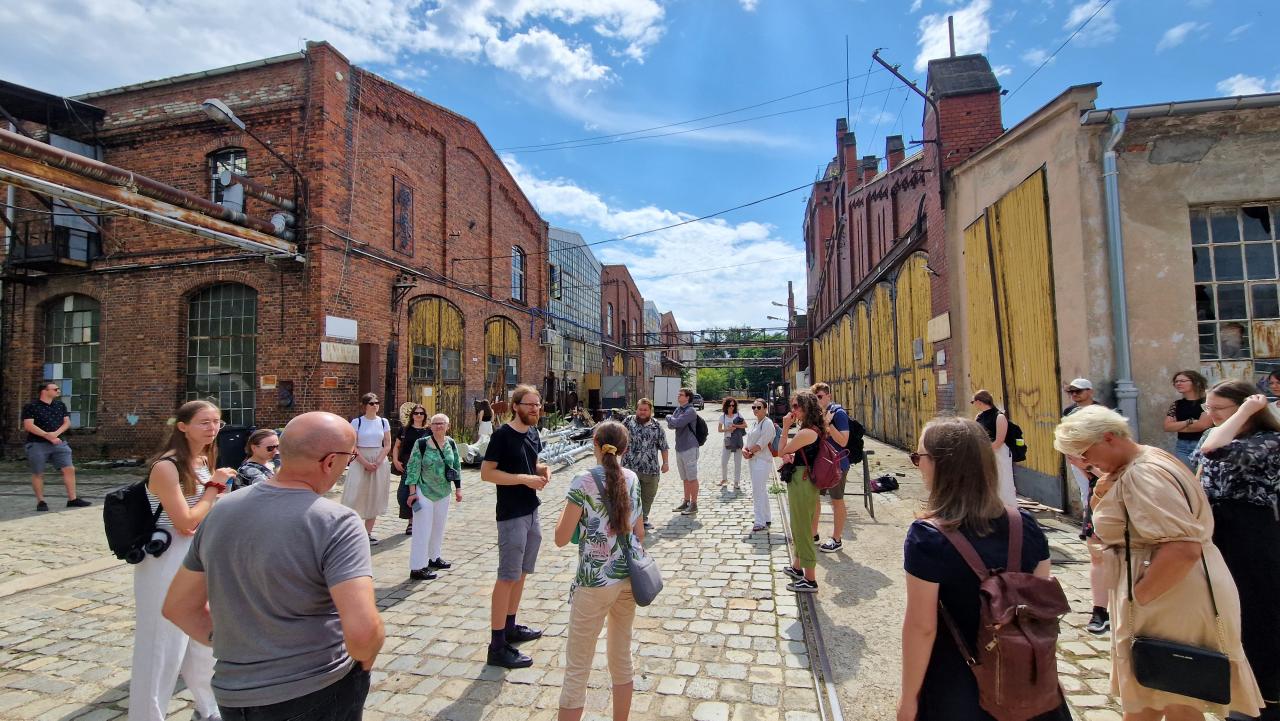Valuable heritage
Former tram and bus depots are increasingly becoming an object of interest not only to architects and historians but also to business representatives, local authorities and residents. Some buildings are taking on the role of public transport museums - more and more often recognised as an integral part of cultural heritage. Others - such as the Sachsenhausen depot in Frankfurt am Main - are transformed into restaurants and cultural event venues. There is no shortage of ideas for opening up former depots to the public. Anyone who has ever visited the depot at 1 - 3 Tramwajowa Street in the Dąbie housing estate, i.e. Czasoprzestrzeń, could witness that as it organises concerts, exhibitions and fairs on a regular basis. Now, the time has come for the gradual transformation of the former depot at 65 Legnicka Street, where the local Protram company has renovated and manufactured trams for Wrocław until a few years ago.
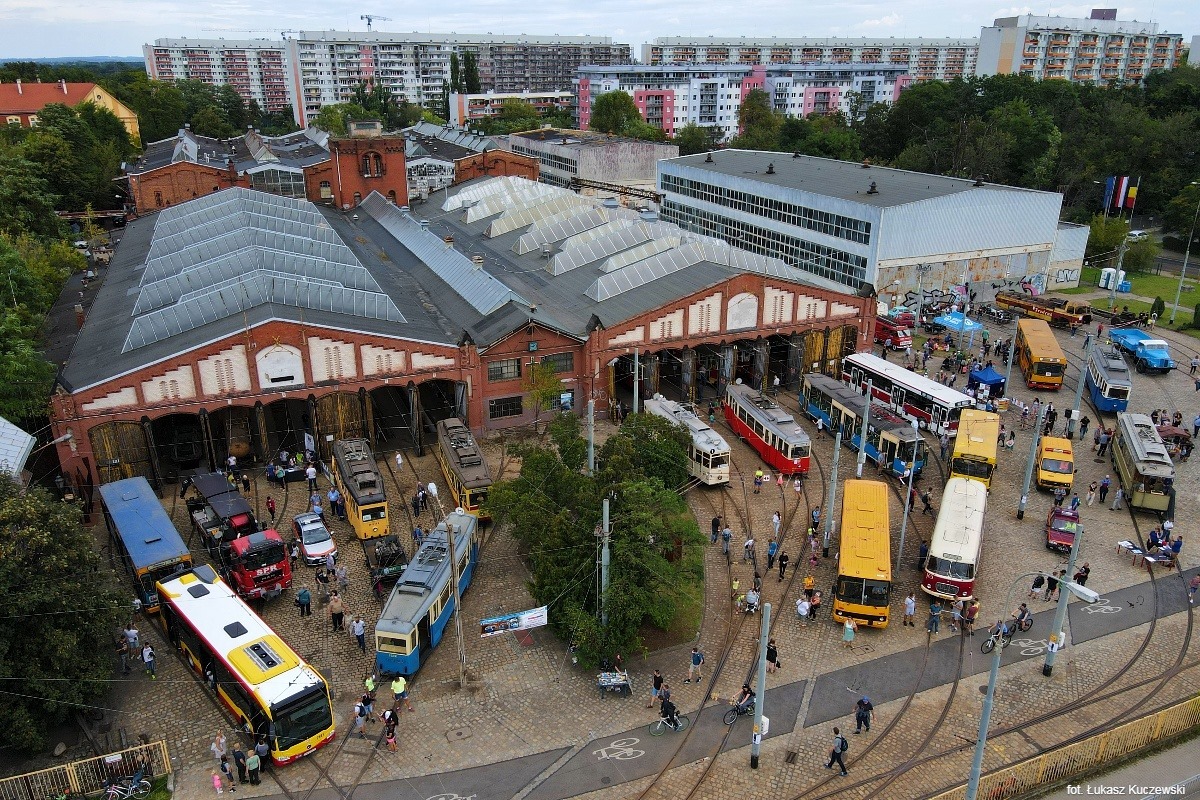
Open Day at Popowice depot
The second life of the Popowice depot
Although the manufacture of trams has long been discontinued, the facility at 65 Legnicka Street was never closed. The depot has become a place where vintage public transport vehicles are stationed and restored - they can be admired during cyclical open days and when taking advantage of rides on the Wrocław Tourist Line WRO-TA. For many years, it has also been home to the Wrocław Center for Supporting Non-Governmental Organizations Sector 3 - an incubator for Wrocław's non-governmental organisations, informal groups and social activists. The TRATWA Association also uses the facilities at the depot, and extreme sports enthusiasts have their spot in the skatepark managed by the Youth Sports Centre.
However, a large part of the Wrocław depot at 65 Legnicka Street is still in need of major refurbishment and is waiting to be put back into use. The task is not easy - the changes need to be implemented taking into account not only the existing installations but also the activities carried out on the site. Moreover, the renovation of the depot should include measures that will contribute to the creation of biodiversity in that place, such as introducing permeable surfaces, retention solutions, rain gardens, and green beds. The idea is to expand the biologically active area and increase rainwater retention in the place that has been dominated by sealed roof surfaces and paved surfaces until now. In an ideal scenario, this will happen in collaboration with the residents, for whom the renovation of the depot will be an opportunity to integrate, cooperate and get involved in local life. They will also gain a new green space on the estate map that can be used for relaxing or meeting others.
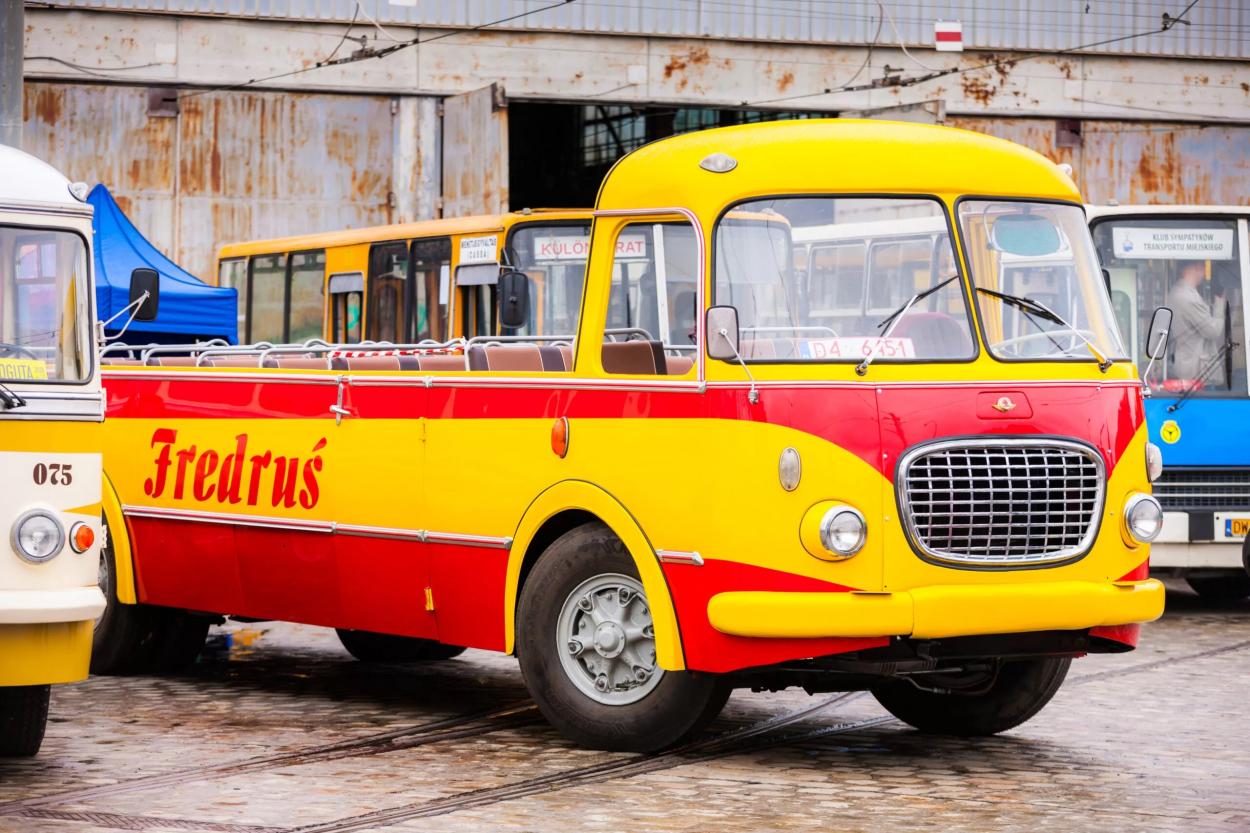
The iconic convertible bus "Fredruś" - part of the Wrocław Tourist Line WRO-TA
How to go green?
To make sure that the renewal of the complex meets those diverse needs, the Wrocław City Council - coordinator of the project "GreenPlace. Let's do it together!" - organised two-day workshops with stakeholders in the whole process. 28 workshop participants - representatives of residents, institutions in charge of greenery and transport, non-governmental organisations and current depot users - identified priority green solutions and indicated their desired location on the site.
The participants worked on feasible solutions that would facilitate, e.g., the identification of the resources needed to initiate the restoration, as well as the development of action plans compatible with the current ways of using the depot. The workshop tasks helped to answer the question of how to make the greening of the depot a social process that could involve local residents and encourage them to visit the depot frequently. In that way, it was possible to develop proposals to introduce environmentally friendly solutions in collaboration with local residents and other users of the depot, while respecting their needs and expectations. For the latter reason, after the completion of the workshops, a survey was carried out among residents of the area and other parts of Wrocław, which allowed to get to know the opinions of the respondents on the future greening of the depot area.
Based on the results of the workshops and the survey, a "testing action" will be designed and implemented to verify whether the proposed solutions and cooperation with local residents and depot users are realistic. Such an approach offers an opportunity to develop recommendations that will facilitate future collaboration with a wide range of local stakeholders while introducing environmentally friendly solutions at the depot.
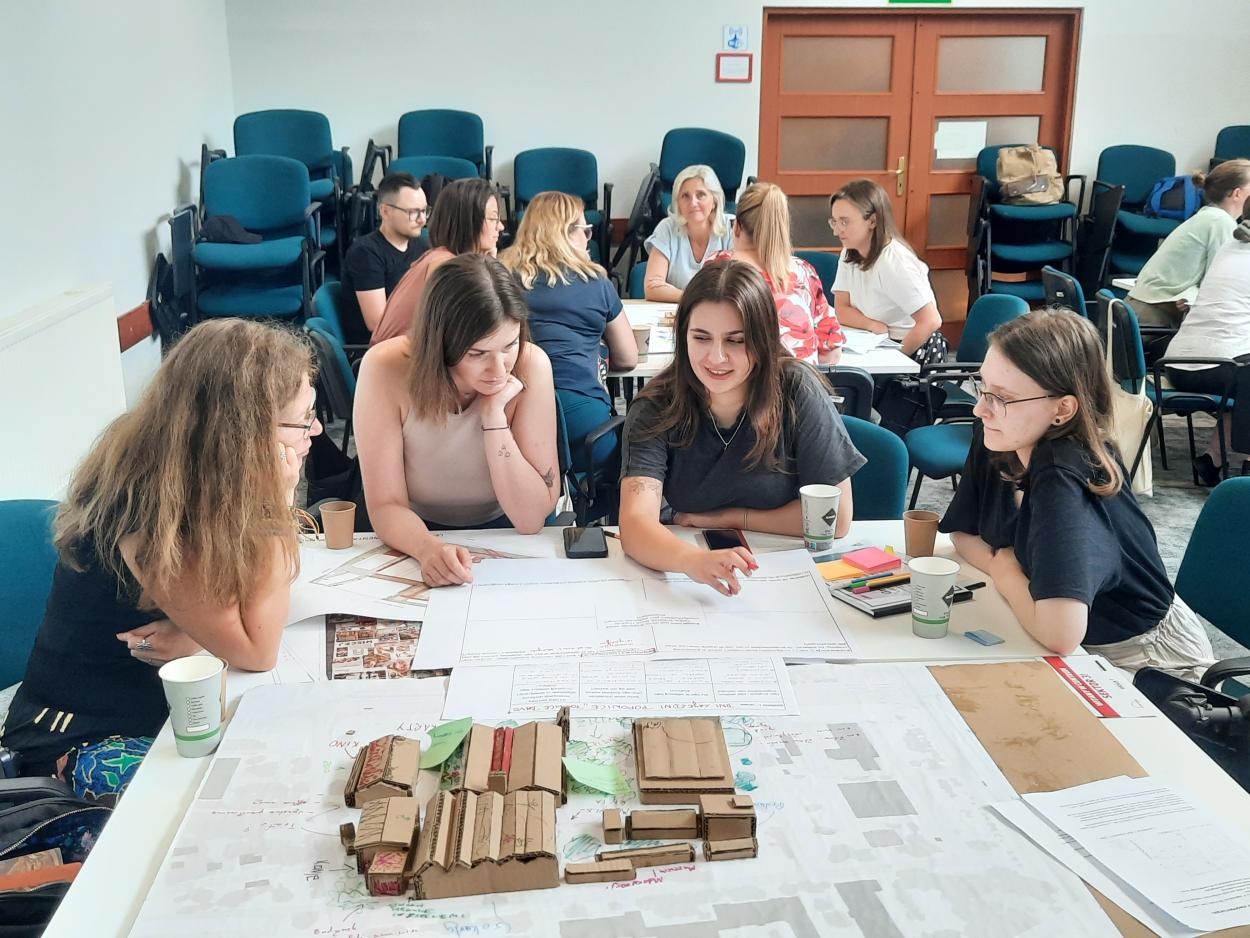
The workshops
What's the first step?
The section of the depot identified for the "testing actions" is the surroundings of the old boiler house that used to heat the entire complex. The "Green Boiler House" project assumes the creation of a green and multifunctional section for recreation and leisure. The proposal is a response not only to the needs identified by the organisations using the depot but also to the demands of the residents. Both the workshops and the survey showed that a universal place needs to be created in the complex that will allow to take a break before or after classes organised at the depot and that could also be a spot for organising small integration and cultural events.
How to combine the expectations with the "testing actions" under the project "GreenPlace. Let's do it together!"? According to the developed solutions, the area to be transformed could become a leisure and cultural space immersed in a green environment - the existing greenery could be tidied up, supplemented and enriched using the advantages of the existing infrastructure. A community garden could be developed in the vicinity of the recreational and cultural space, and the possibility of introducing a rainwater recovery installation could be tested during the implementation of the project.
The assumptions of the "testing action" are a compromise between the expectations of local residents and the choices of workshop participants. Indeed, those who took part in the survey placed emphasis on maintaining the existing events with the use of historic public transport vehicles, as well as on creating a space for relaxation that would complement the cultural events. In turn, the workshop participants focused on proposals for ecological activities that are worth testing with the involvement of stakeholders and taking into account their needs.
To combine both perspectives, residents and users of the depot will be invited to take part in activities around the "Green Boiler House", including gardening workshops, the creation of a community garden and the construction of pallet furniture together. All this to ensure that the shape and character of the place meet social expectations in the best possible way and, at the same time, raise awareness of the users of the climate-related challenges. Working together will also be an opportunity to build social bonds, people's attachment to the place and their commitment to its maintenance, which is crucial for the long-term success of the project. Field activities (if weather conditions permit) will begin this autumn, so that - after the winter dormancy and completion of the works next spring - the effects could please the visitors in the following season.
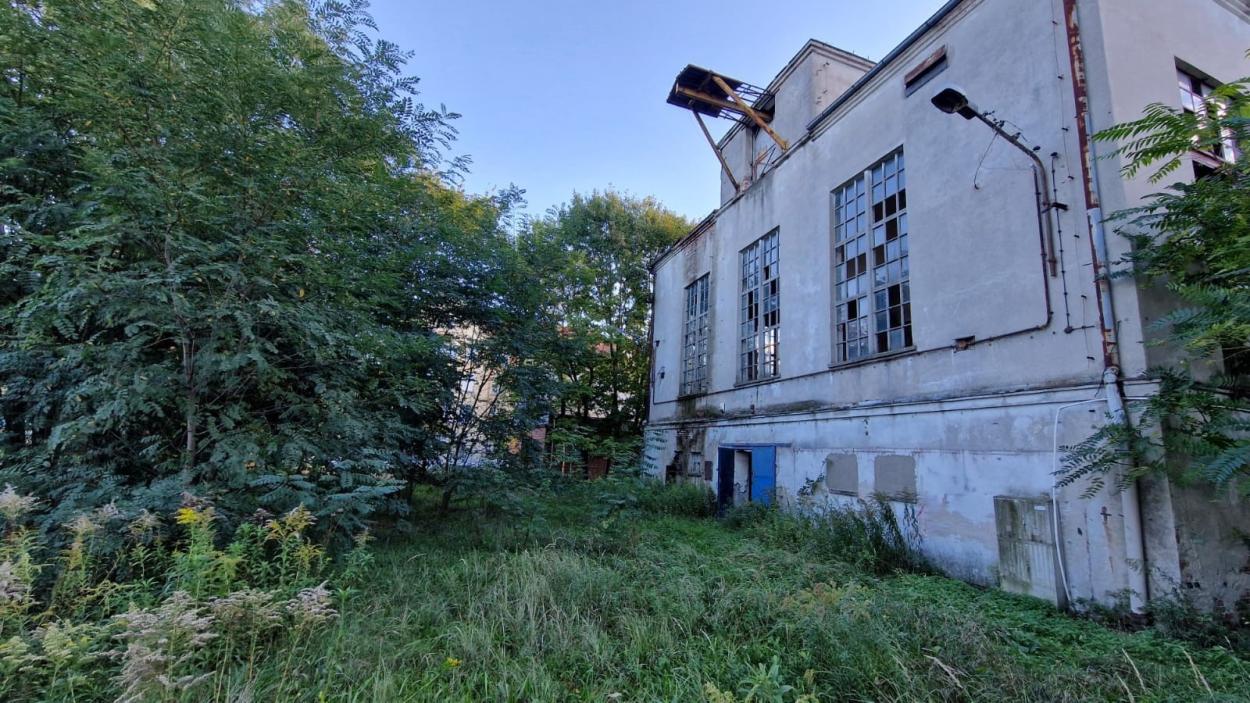
The old boiler house area
Article written by Foundation for European Studies, November 2024, Wrocław

